Return To Seoul: When Coming Home Is Just The Start Of A Very Long Journey
Filmmaker Davy Chou presents a counter-narrative to the templatised adoptee-in-search-of-identity story in Return to Seoul. Prahlad Srihari writes.
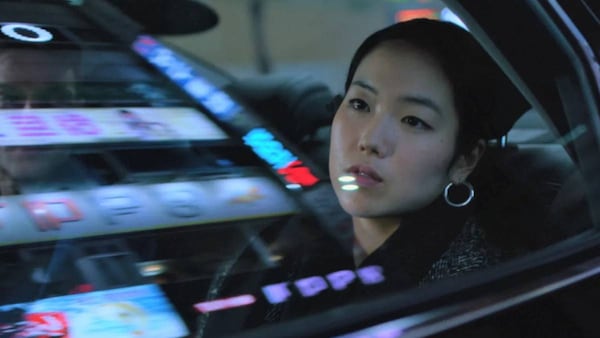
Last Updated: 11.15 AM, Apr 26, 2023
STORIES about transnational and transracial adoptees trace, more or less, the same kind of journey: children grow up wrestling with a feeling of in-between-ness and come to question their identity as adults; the answer, they hope, lies in reconnecting with their roots; the usually arduous search for biological families ends in tearful reunions and/or coming to terms with themselves. Cambodian-French filmmaker Davy Chou presents a counter-narrative in Return to Seoul. For the Korean-born, French-raised Freddie (Park Ja-min), short for Frédérique Benoit, travelling to her country of birth doesn’t bring any great clarity on her bicultural identity. Seeking her birth parents doesn’t provide any self-certainty, like she has found the missing puzzle piece that makes her her. Reunions are strained by culture shock. Closure sure doesn’t come easy.
In truth, Freddie only makes the trip to Seoul because her flight to Tokyo was cancelled at the last minute. Her reconnecting-with-roots narrative thus begins by impulse, not by design. She embarks on the search for her birth parents reluctantly on the recommendation of the hostel receptionist, Tena (Guka Han), she befriends. Knowing little to no Korean, she is as cautious as curious. The search nonetheless proves half-successful in quick time. Ironically, this is when the identity crisis kicks in, as her father is eager to reconnect but her mother not so much, thereby fracturing her sense of self.
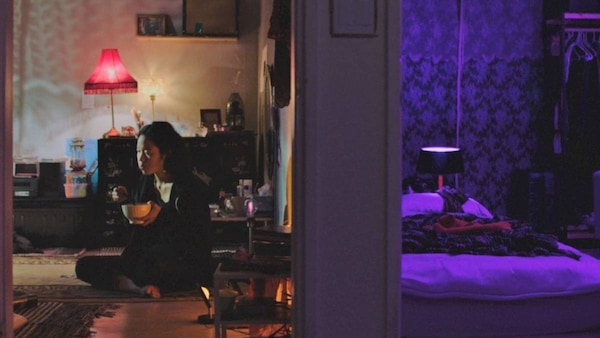
Freddie was adopted as a toddler by a French couple. At 25, on making her first trip to South Korea, she experiences feelings of rejection she hadn’t before because she wasn’t too concerned about finding her birth parents. At the same time, it isn’t hard to understand why those adapted cross-nationally can feel like outsiders in the country they were raised, like their adopted homes were places of exile. Chou crafts a piercing character study about how alienation can just as easily extend to the experience of homecoming i.e., returning to the country of birth.
Over a span of eight years, Freddie returns to Seoul again and again. Each time, she comes back a whole different person, trying on different personalities for size. Careers too: she goes from an impulsive backpacker to an international arms dealer. Redefining herself endlessly is a defence mechanism so she doesn’t get attached to anyone or anything. She pushes friends, lovers and family away due to a fear of abandonment. She pushes back against societal expectations and ethnic markers that threaten to pin her down. When someone remarks she has a traditional Korean face, she can’t mask her unease. When described as Korean, she readily insists she is French.
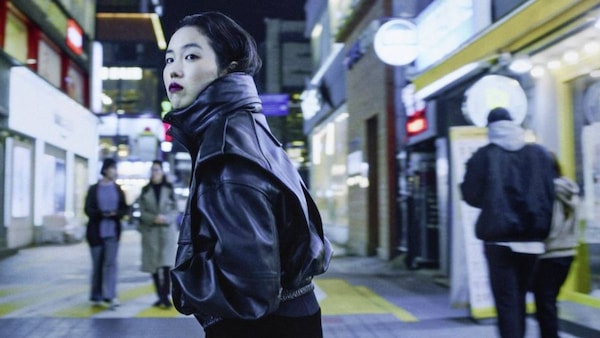
By turns friendly and confrontational, lively and cagey, sure of herself and full of doubt, Freddie is brought to life in all her contradictions by visual artist and first-time actor Park. Not having prior acting experience brings out a beguiling rawness to the role and supplies an air of mystery. Park’s own personal experiences, as a Korean woman brought up in France, no doubt inform how Freddie negotiates her identity.
Navigating the barriers of language and culture provides curious insight into the adoptee experience. When Freddie meets her biological dad (Oh Kwang-rok) for the first time, the two must rely upon her friend Tena and his sister (Kim Sun-young) as translators. The father is a divorced man devastated by regret over having given Freddie up for adoption. Regret has led to alcoholism and left a shadow on the family with his second wife as well.
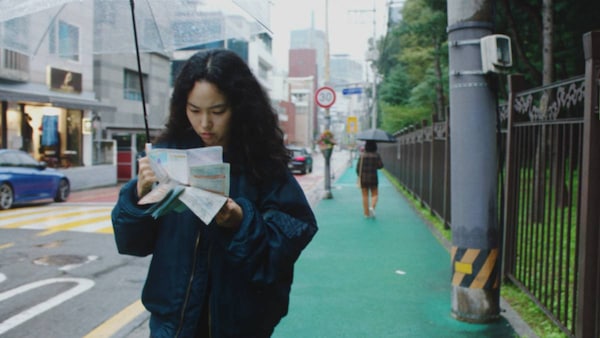
To make up for the past, he coaxes Freddie to come live with him. He even offers to find her a nice Korean husband. Freddie naturally isn’t too keen on the idea and expresses her distaste quite strongly. While translating, Tena and the aunt ensure to tone it down so as to not hurt his feelings. In a desperate drunken plea, when he fails to respect Freddie’s boundaries, she screams in anger so he can hear her objection loud and clear. Yet, she can’t bring herself to disaffiliate entirely. Meanwhile, the continued non-response from her mother leaves her incomplete and drifting.
Music provides the film with a beating heart, attuning itself to Freddie’s evolution across the return trips. In the opening scene, Tena is listening to “Petals” by Lee Jung Hwa before she is interrupted by Freddie. When enquired about the song, Tena lends her headphones so Freddie can listen to it herself. The song puts a smile on her face. It is a smile of familiarity despite not knowing the language. Music can transcend language in a way translation cannot. It also conveys the complexities of Freddie’s character in a way words cannot.
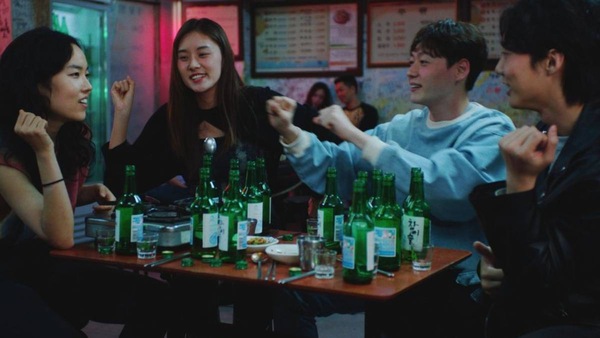
At one point, Freddie describes how she lives her life like a sight-reader: “analyse the music in one glance, evaluate the danger, and jump in”. To illustrate, she rallies together young strangers at a bar for a lively soju session. The film shares her volatile personality and aching restlessness. During a dance sequence at a nightclub, the frame can barely contain her energy. Chou, like a sight-reader himself, feels the rhythm of the piece. He is always perfectly aware of its direction as it builds through changing movements of anger, defiance and finally some measure of inner peace.
Return to Seoul was screened at the 2023 Bengaluru International Film Festival (BIFFES) as part of its "Cinema of the World" section.
